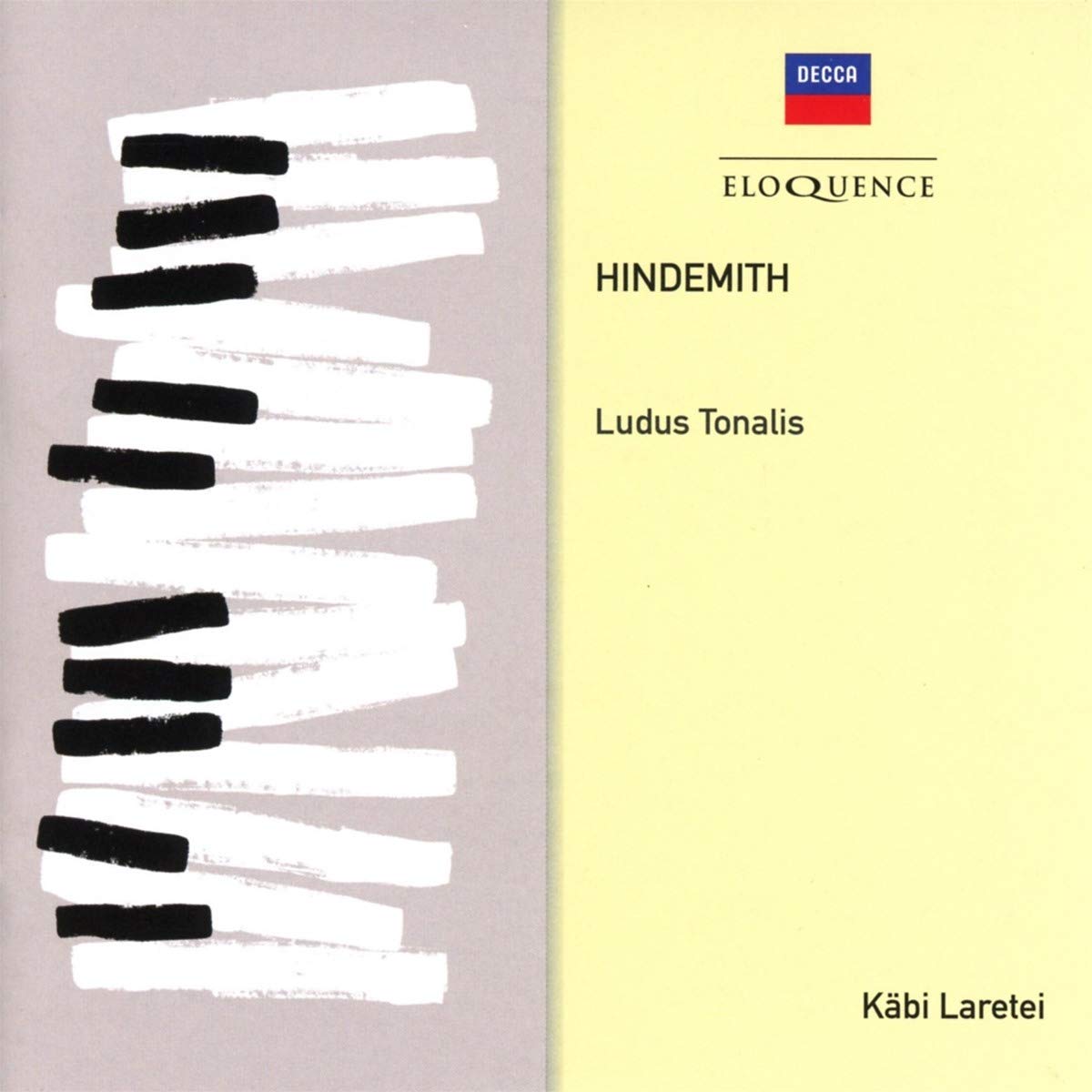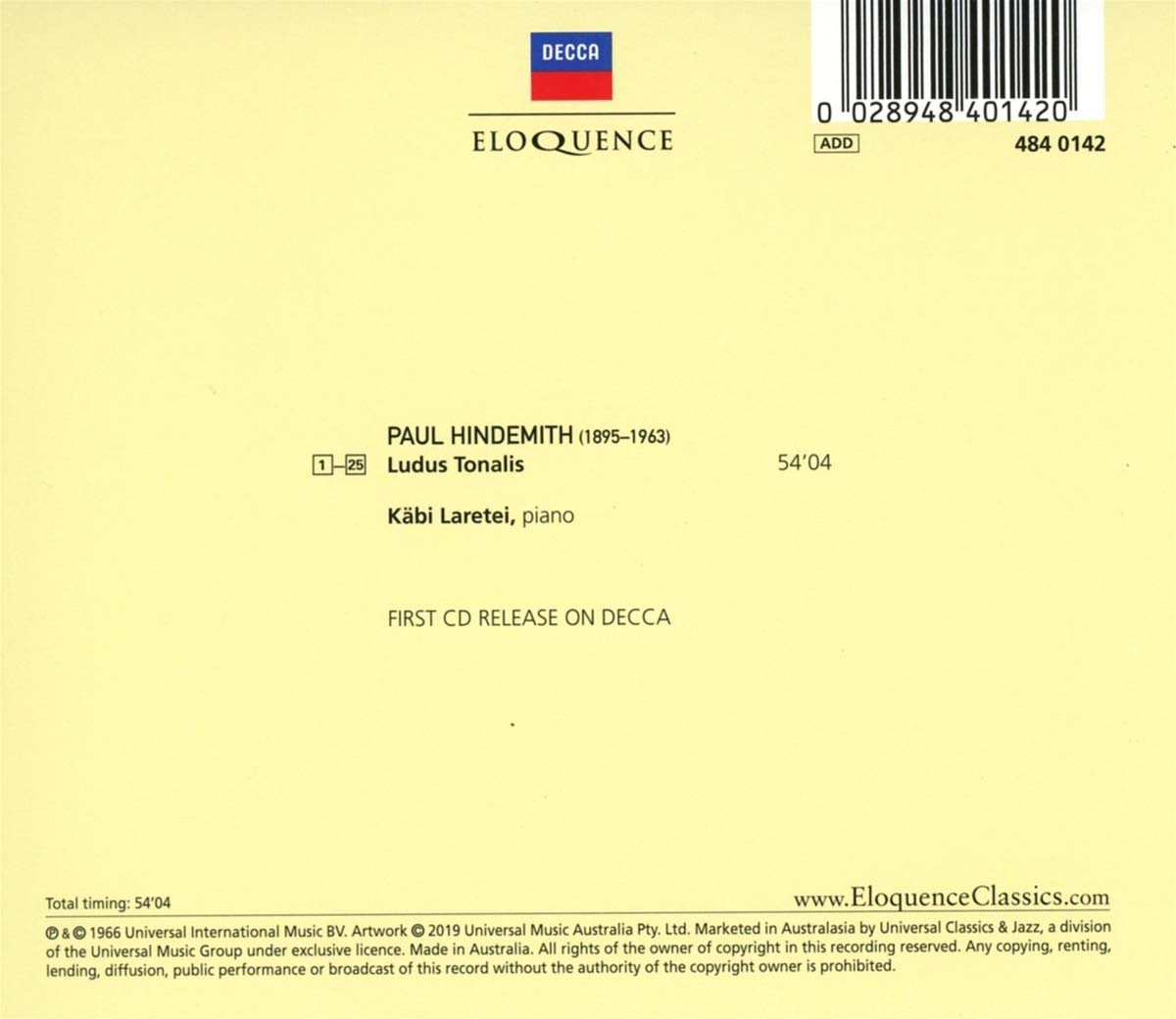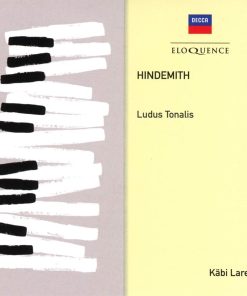HINDEMITH: LUDUS TONALIS – KABI LARETEI DECCA
$ 14,99 $ 8,99


A 20th-century counterpart to The Well-Tempered Clavier in a landmark recording, long unavailable, newly remastered and transferred to CD from the original tapes for the very first time. Hindemith wrote Ludus tonalis in 1942 while staying the US as a refugee from Nazi Germany. The hour-long piano cycle itself finds refuge from conflict in the reassertion of the time-honoured value of counterpoint, comprising twelve fugues and interludes framed by a prelude and it’s mirror image as a postlude. It’s a monument of modern keyboard literature whose forbidding reputation is belied by the approachable and highly varied nature of Hindemith’s writing. There is a unique authority to this recording made in October 1965 for the Philips label by the Estonian-Swedish pianist Käbi Laretei. Having been coached by the composer in the cycle a decade earlier, she incorporated his performance suggestions and amendments to the score into her performance. She recorded Ludus tonalis in a New York studio a few days after presenting it at Carnegie Hall, where she had won over the audience not only with her performance but also a question-and-answer session after the concert. Having studied with Edwin Fischer, Laretei had performed throughout Europe for the past two decades, becoming something of a celebrity. Her television debut on the BBC had led to a series of programs back in Stockholm where she lived with her husband at the time, the film director Ingmar Bergman. However, she made comparatively few recordings: this account of Ludus tonalis is her major legacy, but it has never been made available on CD.


‘Its technical and scholarly attributes are happily partnered by humour, charm and a great deal of fertile imagination. Pianists who can solve Hindemith’s formidable demands have always had a great deal of fun playing Ludus tonalis, and a really distinguished performance of it can provide much enjoyment for the listener.’ – High Fidelity, May 1966
‘[Kabi Laretei’s] fervent, committed, technically dazzling interpretation never has appeared on CD, and it deserves reissue.’ – Classics Today
Fast Shipping and Professional Packing
Due to our longstanding partnership with UPS FedEx DHL and other leading international carriers, we are able to provide a range of shipping options. Our warehouse staff are highly trained to pack your goods exactly according to the specifications that we supply. Your goods will undergo a thorough examination and will be safely packaged prior to being sent out. Everyday we deliver hundreds of packages to our customers from all over the world. This is an indication of our dedication to being the largest online retailer worldwide. Warehouses and distribution centers can be located in Europe as well as the USA.
Orders with more than 1 item are assigned processing periods for each item.
Before shipment, all ordered products will be thoroughly inspected. Today, most orders will be shipped within 48 hours. The estimated delivery time is between 3-7 days.
Returns
The stock is constantly changing. It's not entirely managed by us since we are involved with multiple parties such as the factory and our storage. The actual stock can fluctuate at any time. Please understand it may happen that your order will be out of stock when the order is placed.
Our policy is valid for 30 days. If you haven't received your product within 30 days, we're not able to issue either a return or exchange.
You are able to return a product if it is unused and in the same condition when you received it. It must also still remain in the original packaging.


























































